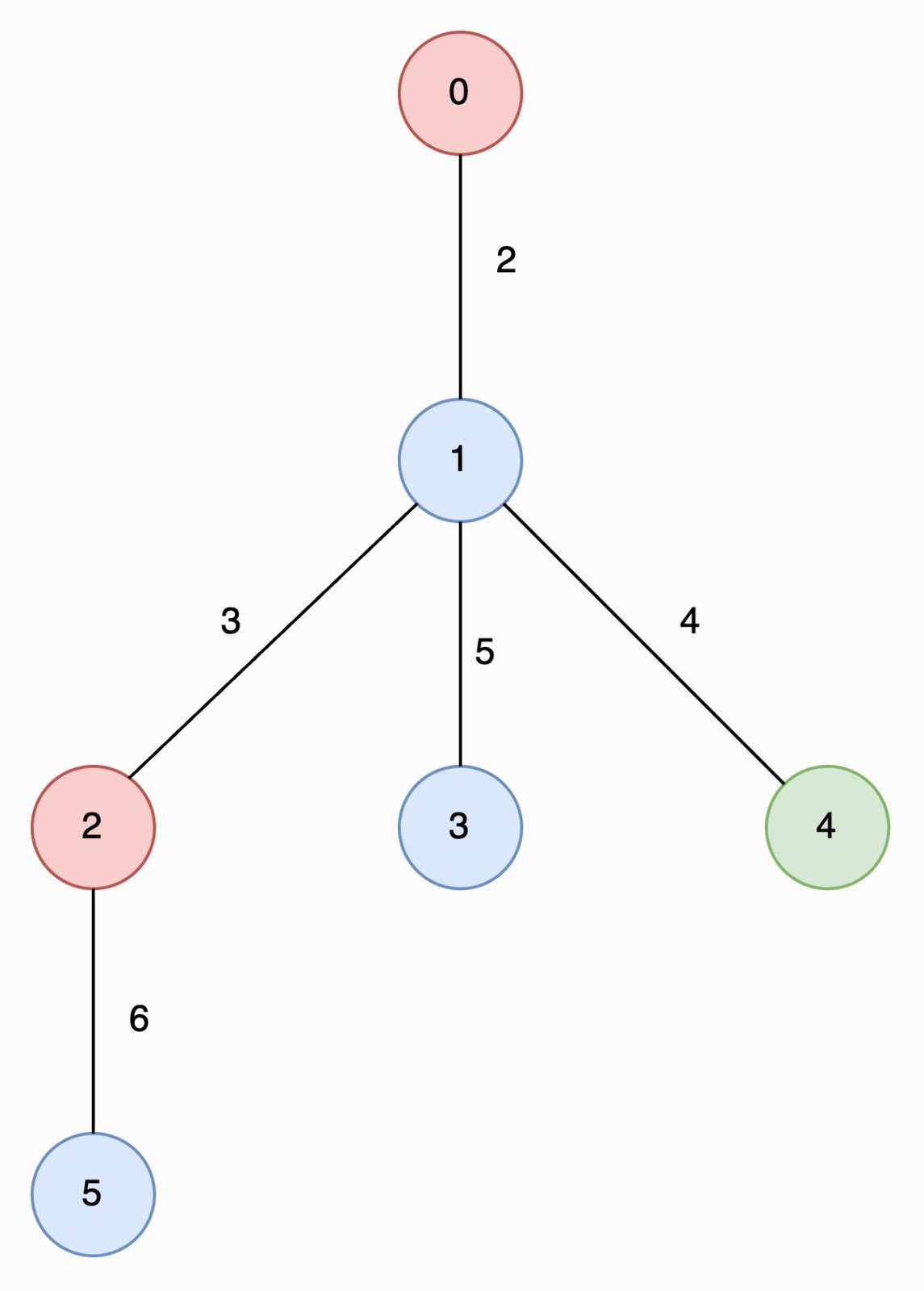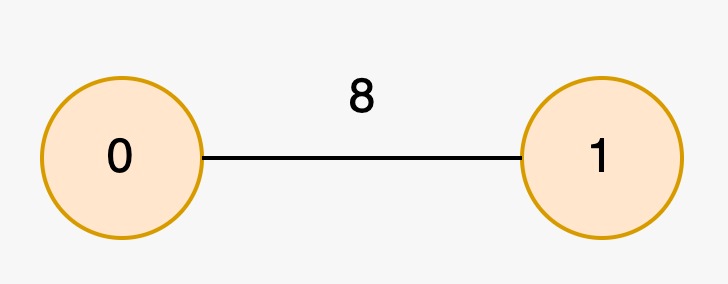LeetCode-in-Java
3425. Longest Special Path
Hard
You are given an undirected tree rooted at node 0 with n nodes numbered from 0 to n - 1, represented by a 2D array edges of length n - 1, where edges[i] = [ui, vi, lengthi] indicates an edge between nodes ui and vi with length lengthi. You are also given an integer array nums, where nums[i] represents the value at node i.
A special path is defined as a downward path from an ancestor node to a descendant node such that all the values of the nodes in that path are unique.
Note that a path may start and end at the same node.
Return an array result of size 2, where result[0] is the length of the longest special path, and result[1] is the minimum number of nodes in all possible longest special paths.
Example 1:
Input: edges = [[0,1,2],[1,2,3],[1,3,5],[1,4,4],[2,5,6]], nums = [2,1,2,1,3,1]
Output: [6,2]
Explanation:
In the image below, nodes are colored by their corresponding values in nums

The longest special paths are 2 -> 5 and 0 -> 1 -> 4, both having a length of 6. The minimum number of nodes across all longest special paths is 2.
Example 2:
Input: edges = [[1,0,8]], nums = [2,2]
Output: [0,1]
Explanation:

The longest special paths are 0 and 1, both having a length of 0. The minimum number of nodes across all longest special paths is 1.
Constraints:
2 <= n <= 5 * 104edges.length == n - 1edges[i].length == 30 <= ui, vi < n1 <= lengthi <= 103nums.length == n0 <= nums[i] <= 5 * 104- The input is generated such that
edgesrepresents a valid tree.
Solution
import java.util.ArrayList;
import java.util.List;
@SuppressWarnings({"java:S107", "unchecked"})
public class Solution {
public int[] longestSpecialPath(int[][] edges, int[] nums) {
int n = edges.length + 1;
int max = 0;
List<int[]>[] adj = new List[n];
for (int i = 0; i < n; i++) {
adj[i] = new ArrayList<>();
max = Math.max(nums[i], max);
}
for (int[] e : edges) {
adj[e[0]].add(new int[] {e[1], e[2]});
adj[e[1]].add(new int[] {e[0], e[2]});
}
int[] dist = new int[n];
int[] res = new int[] {0, Integer.MAX_VALUE};
int[] st = new int[n + 1];
Integer[] seen = new Integer[max + 1];
dfs(adj, nums, res, dist, seen, st, 0, -1, 0, 0);
return res;
}
private void dfs(
List<int[]>[] adj,
int[] nums,
int[] res,
int[] dist,
Integer[] seen,
int[] st,
int node,
int parent,
int start,
int pos) {
Integer last = seen[nums[node]];
if (last != null && last >= start) {
start = last + 1;
}
seen[nums[node]] = pos;
st[pos] = node;
int len = dist[node] - dist[st[start]];
int sz = pos - start + 1;
if (res[0] < len || res[0] == len && res[1] > sz) {
res[0] = len;
res[1] = sz;
}
for (int[] neighbor : adj[node]) {
if (neighbor[0] == parent) {
continue;
}
dist[neighbor[0]] = dist[node] + neighbor[1];
dfs(adj, nums, res, dist, seen, st, neighbor[0], node, start, pos + 1);
}
seen[nums[node]] = last;
}
}

